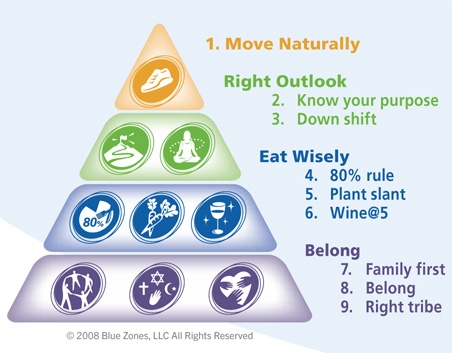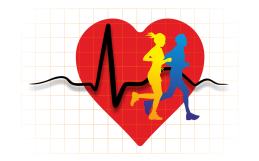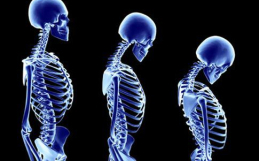When discussing this topic with patients and friends, the common response is “I don’t want to live that long!”
Why is that? It’s because most North Americans envision all the potentially negative complications associated with aging.
Why wouldn’t you want to live for as long as possible? If you can do whatever you want to do, without any physical and/or mental limitations, wouldn’t a longer life be better?
Throughout my workshops on nutrition and exercise, I will always highlight certain cultures that live to 100. The fact that they function and feel great throughout their lives is the most important aspect of these cultures.
In his book, “The Blue Zones: Lessons for Living Longer From the People Who’ve Lived the Longest”, Dan Buettner describes these cultures in detail. Watch his video to learn more:
The Blue Zones
According to Buettner, in the Blue Zones, people live 10 years longer, experience ⅙ the rate of cardiovascular disease, and ⅕ the rate of major cancers. He identifies the following Blue Zones in his book:
- Sardinia, Italy
- Okinawa, Japan,
- Loma Linda, California
- The Nicoya Peninsula, Costa Rica
Buettner discusses 9 habits that are very simple to perform by anyone and coins the term, The Power 9. These habits include:
 Move naturally — Do activities you enjoy.
Move naturally — Do activities you enjoy.- Cut calories by 20 percent — I don’t espouse calorie counting, but remember the practice “Hara hachi bu,” the Okinawan reminder to stop eating once their stomachs are 80 percent full.
- Plant-based diet — You don’t have to be vegan or vegetarian. Just eat lots of veggies.
- Drink red wine — In moderation, meaning 2 serving or less per day.
- Plan de Vida — Determine your life purpose.
- Down shift — Reduce stress in everyday life.
- Spirituality — Belong/participate in a spiritual community.
- Family first — Put loved ones first and make family a priority.
- Pick the right tribe — You are a product of those people you choose to have around.
Unfortunately, when many of these cultures begin to adopt our typical North American culture of poor nutrition, chronic stress, and inactivity, then many of the lifestyle-related disease that are seen in our culture will be quickly seen in these cultures.
More Tips on Longevity
Peter Attia of the Florida Institute for Human and Machine Cognition (IHMC) discusses how to live long and better in the first episode of the STEM-Talk podcast. He is also featured on Chris Kresser’s podcast, where he reviews the top 8 keys to longevity — warning: the discussion is very technical!
A few main points from those episodes:
- Centenarians get chronic diseases 20-30 years later than most people.
- Longevity is first and foremost about delaying the onset of chronic disease.
- Animal literature shows that caloric restriction increases longevity.
- 70 to 80 percent of all deaths will be due to four diseases or three disease processes. The first is atherogenic diseases, which obviously includes heart disease and cerebrovascular disease. The second is neoplasm, cancer, and the third is neurodegenerative disease of which two particular diseases make it into the top 10 — Alzheimer’s disease and Parkinson’s disease.
- All these major diseases are associated with insulin resistance and inflammation.
- We have these four major causes, or “triad of disease processes”, that kill 70 to 80 percent of people over 40. So if you want to live longer, you have to figure out how to delay the onset of these diseases.
- For the other 20 percent of deaths, the vast majority are motor vehicle accidents, accidental poisonings, and falls. Motor vehicle accidents lead significantly, so wear a seat belt. Avoid texting/distracted driving. Don’t drink and drive. When you cross an intersection always look left first (most deaths occur from the left).
- The most important dietary impact we can have on chronic disease is keeping insulin low. We can do this via restricting calories or simply restricting carbohydrates. You’re probably better off with excess fat in your diet than excess protein in your diet. Excess protein has growth promoting factors (via IGF-1).
- Nothing trumps resistance training. More muscle allows you to tolerate greater glucose input (tolerate more sugars and carbohydrates). The loss of muscle mass accelerates as we age. Exercise is a way to optimize glucose disposal and muscle mass (primarily activating Type IIB muscles fibers). To avoid muscle loss and make carbohydrates and sugars you consume end up in your muscles and not in your fat cells (around your abdomen).
- Avoid sitting and squat more. We are born to squat. Maintain your mobility with a training program.
- Optimize sleep. Sleep deprivation has many adverse effects including insulin resistance, which is a major problem for longevity.
- Use breathe work and meditation to deal with stress. There’s no doubt that keeping cortisol levels in check requires the most work.
- Maintain social support and a sense of purpose.













